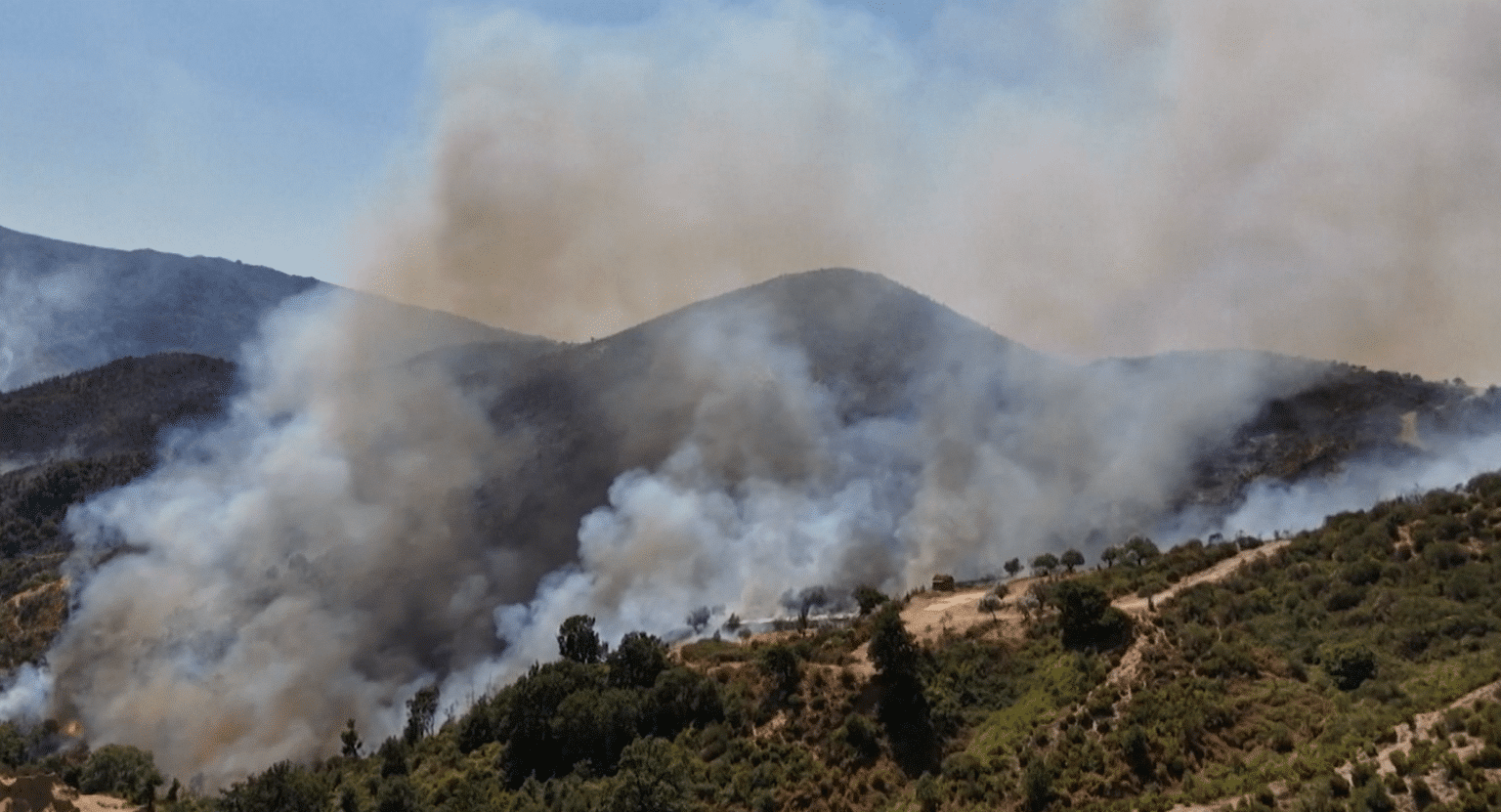A deadly heatwave pushing temperatures above 40C has ignited dozens of wildfires across southern Europe, killing at least three people and forcing thousands from their homes in Italy, Spain, Portugal, Greece, and the Balkans. Authorities have issued red heat alerts across multiple countries, warning of severe health risks as firefighting crews battle blazes fanned by strong winds and scorching conditions.
Spain’s weather service Aemet said temperatures could reach 44C in Seville and Cordoba, while southern Portugal could also see similar highs. In Spain, an equestrian centre employee died after suffering severe burns in Tres Cantos, near Madrid, where winds exceeding 70km/h drove flames close to homes, prompting hundreds to flee, reports BBC.
Spanish Prime Minister Pedro Sanchez urged the public to remain cautious. “We are at extreme risk of forest fires. Please be very cautious,” he posted on X, adding that rescue services were working tirelessly to contain the blazes.
In Spain’s north-western region of Castile and Leon, almost 4,000 people were evacuated as more than 30 fires were reported, including one threatening the Unesco-listed Las Médulas site, famed for its ancient gold mines. Another 2,000 people were forced to leave hotels and homes near Tarifa in Andalusia.
Spain’s national military emergency unit deployed almost 1,000 soldiers to assist in firefighting efforts nationwide.
In Portugal, three major fires burned on Tuesday, with the largest near Trancoso in the country’s centre reported as contained. More than 1,300 firefighters and 14 aircraft were mobilised, with Morocco sending two water-bombing planes after Portuguese aircraft broke down. Authorities warned southern regions could reach 44C, with overnight lows staying above 25C.
In Italy, a child died of heatstroke on Monday, with temperatures of 40C expected later this week. Red heat alerts were issued for at least 10 cities, including Rome, Milan, and Florence. In Sardinia, a four-year-old Romanian boy found unconscious in a car later died in hospital from heatstroke-related brain damage.
In France, nearly three-quarters of the country is under heat alerts, with the Paris region forecast to reach 36C and the Rhône Valley up to 40C. Health Minister Catherine Vautrin said hospitals were bracing for the impact of the nation’s second heatwave in weeks.
Greece is battling more than 150 wildfires, intensified by fierce winds, with nearly 5,000 firefighters and dozens of aircraft engaged. Mass evacuations are under way on Zakynthos and in western Achaia, where homes, vehicles, and businesses have been destroyed. In Chios, rescue boats evacuated beachgoers trapped by advancing flames, while officials requested EU firefighting aircraft.
Greek authorities have warned that worsening conditions are expected in the coming days.
Turkey has brought several major fires under control, including in Canakkale and Izmir, after evacuations forced the closure of the Dardanelles Strait and Canakkale airport.
In Montenegro, a soldier died and another was injured when their water tanker overturned while tackling blazes near Podgorica.
Wildfires in Albania triggered evacuations on Monday, while in Croatia a large fire in Split was contained on Tuesday.
In the UK, temperatures have reached 33C in the country’s fourth heatwave of the year, with amber and yellow health alerts issued for all of England. Two grassfires broke out in London on Tuesday, burning over 17 acres combined.
Scientists warn that climate change is making Mediterranean summers increasingly hot and dry, creating conditions for longer and more intense wildfire seasons. The current crisis, they say, offers a stark glimpse of a future where extreme heatwaves and destructive fires become more frequent across the region.


